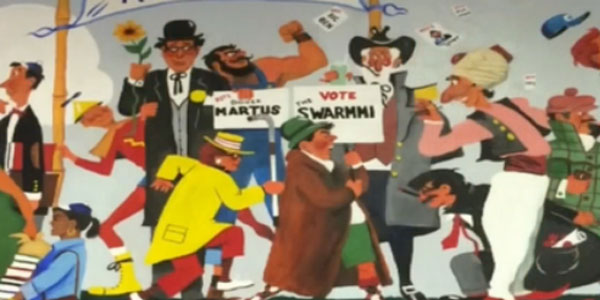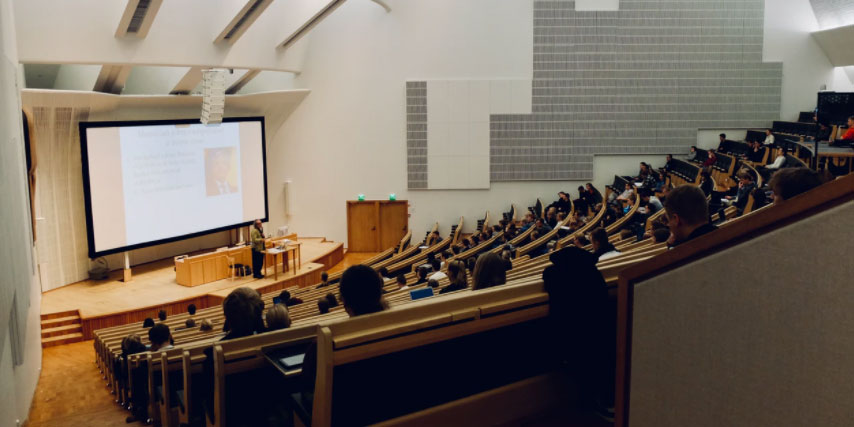In early October, the Rhode Island Department of Health and then-Director Nicole Alexander Scott ordered Dr. Stephen Skoly to to stop caring for patients, stating that he was an “imminent threat to the health of the public” because he declined to get the COVID-19 vaccine. Dr. Skoly has natural immunity against the disease and has valid medical issues that speak against his getting the vaccine. But this did not conform to Governor McKee’s and Dr. Alexander Scott’s rigid, non-scientific (because it denies natural immunity) vaccine mandate on healthcare workers. Accordingly, Dr. Skoly was forced to cancel two thousand, one hundred patient appointments, including hundreds of appointments for ward-of-state patients.
Anchor Rising contacted the Public Information Office of the Rhode Island Department of Health during Dr. Alexander Scott’s tenure and asked:
… what steps are being taken to provide service to the many hundreds of patients, some of whom are wards of the state, of Dr. Stephen Skoly, whom the Director ordered in early October to stop caring for patients?
The office responded
In terms of Dr. Skoly’s patients, Eleanor Slater Hospital is working to ensure continuity of care for these patients.
Anchor Rising reached out to Eleanor Slater Hospital’s Interim Chief Executive Officer Richard Charest twice with the following questions.
> Has Eleanor Slater Hospital undertaken to ensure continuity of care of Dr. Stephen Skoly’s patients?
> If so, which patients, all or only wards of the state, did the hospital undertake in this endeavor? And how many patients?
> If the hospital has so undertaken, how successful has the hospital been in connecting patients to providers; i.e., what percentage of the patients are currently receiving care from new providers versus a new provider identified but patient is waiting for care versus no provider has been identified?
Mr. Charest did not respond to Anchor Rising’s inquiries. In an interview, Dr. Skoly advised Anchor Rising that no doctor or provider had contacted his office requesting the files of any of his ward of the state patients, which would indicate a new provider had taken over care of a patient, nor had the state of Rhode Island been in touch with him about those patients. In short, there is no indication that any of these patients have received continuity of care via the Department of Health’s … handling of their medical needs after that department took away their doctor. Further casting doubt is that the Department of Health assigned “continuity of care” responsibility for hundreds of patients to a medical facility that already has its hands full dealing with its own operational and funding issues.
And it is not just Dr. Skoly’s ward-of-state patients who were abruptly deprived of care by the Rhode Island Department of Health’s highly selective and unscientific order against Dr. Skoly. All of his patients have had to scramble to arrange their own “continuity of care.” In light of his specialty and his skill, many have had to go out of state or wait many months for an appointment with another provider or have simply not been successful in doing so.
With the departure of former Director of Health Dr. Nicole Alexander Scott, Governor McKee can start crafting COVID-19 public health policy that is guided foremost by science and the promotion of public health. The first step would be to rescind his vaccine mandate on healthcare workers, or at least modify it to recognize natural immunity, which now even the CDC (welcome to the party, pal) acknowledges confers stronger protection than vaccination and to also allow standard medical (pregnancy, risk of side effects) and religious exemptions. This would scientifically, easily restore 1,300 (in theory, if they have not all moved on) healthcare workers to a badly understaffed healthcare system and a badly needed oral and maxillofacial specialist to his patients and his practice.
[Image courtesy Desperate Men Ministries]
[Open full post]One interesting sidebar to watch (maybe) is whether any of the local journalists reporting on the development will bother to find and quote any URI graduates who disagree with the move. I added the parenthetical “maybe” to cover the unlikely event that they actually do. It’s echo chambers all the way down.
[Open full post]As always, Glenn Reynolds captures a key point while linking to a story about three Connecticut girls who have filed a complaint after having two biological males dominating their sport:
I’ll bet they supported Biden in 2020 though.
By “they,” Reynolds means the three girls, whom odds would place as reflexive Democrats and who are now finding that Utopia comes at a price.
We may (if we’re fortunate) be headed toward a great cognitive dissonance in our culture. The Left’s great march through the institutions established the ability to define what all good people must believe, and they promulgated the false notion that bad things can never come from good intentions. Those notions would be harmful even if progressive policies worked, and they don’t work, so good-feeling idealism is about to come up against a wall of pain and reality.
[Open full post]Mainstream news sources are beginning to admit things that were entirely ignored, except by us fringe wackos, just a few short months ago:
The study examined infections in New York and California last summer and fall and found people who were both vaccinated and had survived a prior bout of COVID-19 had the most protection.
But unvaccinated people with a prior infection were a close second. By fall, when the more contagious delta variant had taken over but boosters weren’t yet widespread, those people had lower diagnoses than vaccinated people who had no past infection.
It falls to us, now, not to forget how they lied to us for over a year — how they scoffed at the idea that such a thing as “natural immunity” existed. They have not treated us as adults able to handle a complicated, somewhat ambiguous reality, instead treating us like children who had to be told stories to corral us toward the outcomes they thought preferable. Those outcomes, by the way, included the political as well as the medical.
We cannot let them merely roll on as if their credibility remains intact.
Of course, the problem with not forgetting their deceit is that we’ll have a hard time knowing what to believe at all. Is this mainstream about-face a deliberate maneuver indicating that the command has gone out to change the narrative? Have the partisans calculated that the growing dissatisfaction with their rulership is so massive that they cannot possibly get away with the necessary election fraud, so they have to soften the anger by making the pandemic go away and get their approval/disapproval ratios back within the margin of coverable cheating? Or have establishment figures whose professional good fortune far outpaced their wits finally figured out what the rest of us have long known?
I propose a test. If the change of narrative is genuinely resulting from the mainstream media’s finally catching up, then they’ll begin looking upon those who got there first with newfound respect. Wherever the people involved may sit on the intellectual bell curve, those who report the news will want to cultivate relationships with the analysts who figured out COVID first so that they can better report on the pandemic (and other stories) going forward.
If, however, the change is cynical and political, then they’ll continue to ignore less-favored sources who got it right and to promote more-favored sources who got it wrong… and caused massive damage and distrust along the way. We’ll know politics are involved because the source will have been proven to be more important than the accuracy.
Featured image by the Climate Reality Project on Unsplash.
[Open full post]Having expressed deep skepticism, to the point of opposition, concerning the possibility that Allan Fung might run for governor again, I thought I should note that his running for the Congressional seat that Democrat Jim Langevin is opening up would be a very different matter:
Former Cranston Mayor Allan Fung, a two-time Republican nominee for Rhode Island governor, said Wednesday he is considering a run to succeed retiring Democratic Congressman Jim Langevin.
Langevin’s bombshell announcement Tuesday has quickly turned Rhode Island politics upside down, with phone lines lighting up about potential candidates who might seek to fill the seat.
In Congress, the radicalism of his wife, Barbara Ann Fenton-Fung, in the state General Assembly would be only of tangential relevance, and in any event, he’d be working among strong Republicans.
Local Democrat partisans and progressives will try to undermine his campaign by claiming that a vote for Fung would be a vote to return the House of Representatives to the national GOP (which they constantly proclaim to be scary). The thing is: that’s the most-likely outcome whoever Rhode Island sends to D.C. From the perspective of Rhode Island’s interests — as distinct from the Democrats’ interests (and they are distinct) — having a single Congressman or Senator in the majority party could only be helpful.
Even from a progressive standpoint, having another Republican in the Capitol with a home-state incentive at least to listen to Democrats would be a plus when the GOP is in the majority.
Unfortunately, the Rhode Island electorate seems to have stopped being strategic or reasonable about fifteen years ago, so the fact that having a full set of Democrats in our delegation only really benefits the party may not matter to voters (or to the people filling out their mail-in ballots).
Featured image by David Clode on Unsplash.
[Open full post]This is a couple months old, but with continued pressure for booster shots, it continues to be on my mind:
… the recommendations — even those approved unanimously — mask significant dissent and disquiet among those advisers about the need for booster shots in the United States.
In interviews last week, several advisers to the Centers for Disease Control and Prevention and to the Food and Drug Administration said data show that, with the exception of adults over age 65, the vast majority of Americans are already well protected against severe illness and do not need booster shots.
All the advisers acknowledged that they were obligated to make difficult choices, based on sparse research, in the middle of a public health emergency. But some said they felt compelled to vote for the shots because of the way the federal agencies framed the questions that they were asked to consider.
I’m not anti-booster, but it’s difficult to feel like we’re getting straightforward medical advice, these days.
[Open full post]Maybe some people collect them or leverage them for some purpose or other, but honorary degrees from colleges and universities have always seemed pretty useless and ceremonial to me — like a certificate to thank a person for participating in an event.
With the latest radical move from the University of Rhode Island’s new president, recently imported from Australia, I’d say honorary degrees have become something worse than useless. Accepting an honorary degree from URI now gives ideological fascists a whip with which to embarass you someday if the political winds shift:
The University of Rhode Island’s new president is asking the board of trustees to revoke the honorary degrees awarded to Michael Flynn and Rudy Giuliani because the two men no longer reflect the institution’s values and standards.
The recommendation by URI President Marc Parlange, who arrived here in August, is an about-face from former URI President David M. Dooley, who did not forward a recommendation to the board of trustees regarding Flynn’s honorary degree.
Well, I’ve got an earned degree from URI, and the institution clearly no longer reflects my values. In sharp contrast with the prior two presidents, since he arrived, Parlange has gone on a hard-left sprint. It’s anti-intellectual, ideological, and embarassing, and I can only hope that he finds reason to move on soon.
The two of my four children who are old enough both applied to URI but with each, I’ve been increasingly less supportive of it as a choice. For the next two, I’ll recommend avoiding contributing so much as an application fee to the culturally destructive and politically divisive institution.
This is regretable. We visited the campus over the summer, and I had the expected wave of nostalgia. If I’d known the place was about to fall into the darkness of ideological ignorance, I’d have taken more pictures. Of course, I was already too late to view the iconic Student Union mural pictured as the featured image of this post, which had already been covered up for the cultural pogrom of aggressive over-sensitivity.
[Open full post]Rick Moran asks that dangerous question:
So what happened to these older, primitive societies — the Clovis people and others who were clearly present in North and Central America before modern Native Americans? They no doubt had what they considered “their land” to hunt and forage. Who stole it from them and wiped them out?
It’s not a simple question because there are so many holes in our knowledge of early North Americans. There may have been tribal conflicts, and there may have been tribal marriages. The DNA record is silent about land claims, but is that really the point?
Moran goes on to note that indigenous people on other continents (including white ones) were similarly displaced and then displaced again. We don’t like to admit it, these days, but that’s how history has worked everywhere. It shouldn’t be forbidden to consider that the Americas were not some land of purity until the arrival of Columbus.
[Open full post]Brian Gottstein notes that Washington, D.C., is requiring proof of vaccination for various purposes, but also photo ID to validate that the vaccine card holder is in fact the person named on it:
[Open full post]Hold on a minute! Wasn’t it just a few short months ago—as the battles over election reform raged in the states—that we were told requiring photo ID to vote was racist and discriminatory because black folks couldn’t get IDs? In fact, it was considered so racist that businesses, sports teams, and celebrities boycotted entire states.
Now, by the left’s own definition, Washington just instituted a whole new level of systemic racism. And it’s certainly affecting the black population—the district’s largest racial group—disproportionately.
One day, somebody will publish a thick collection of documents written by those who have been awakening to, and warning about, wokeness. Jordan Peterson’s open letter explaining his resignation as a tenured professor will be among its pages (if anybody can afford the rights!). Some will scoff at Peterson, but this document is the most famous professor on the planet denouncing higher education as “a stunningly corrupt enterprise.” That’s stunningly significant.
Peterson extrapolates from his perspective in the ivory tower to issue a much broader warning, concluding thus:
And all of you going along with the [Diversity, Inclusivity, and Equity IDIE)] activists, whatever your reasons: this is on you. Professors. Cowering cravenly in pretence and silence. Teaching your students to dissimulate and lie. To get along. As the walls crumble. For shame. CEOs: signalling a virtue you don’t possess and shouldn’t want to please a minority who literally live their lives by displeasure. You’re evil capitalists, after all, and should be proud of it. At the moment, I can’t tell if you’re more reprehensibly timid even than the professors. Why the hell don’t you banish the human resource DIE upstarts back to the more-appropriately-named Personnel departments, stop them from interfering with the psyches of you and your employees, and be done with it? Musicians, artists, writers: stop bending your sacred and meritorious art to the demands of the propagandists before you fatally betray the spirit of your own intuition. Stop censoring your thought. Stop saying you will hire for your orchestral and theatrical productions for any reason other than talent and excellence. That’s all you have. That’s all any of us have.
The DIE activists (as Peterson rearranges the acronym) have no power but what we’re deceived into granting them, and we shouldn’t grant them any. As the professor explains, their ideology is poisonous and destructive; it is precisely an intellectual virus, either emerging naturally or deployed against us like a psychological weapon.
We need many more prominent intellectuals to take the risk of writing such alerts, because Peterson’s and Bari Weiss’s resignation letter from the New York Times are not enough.
Featured image by Dom Fou on Unsplash.
[Open full post]





